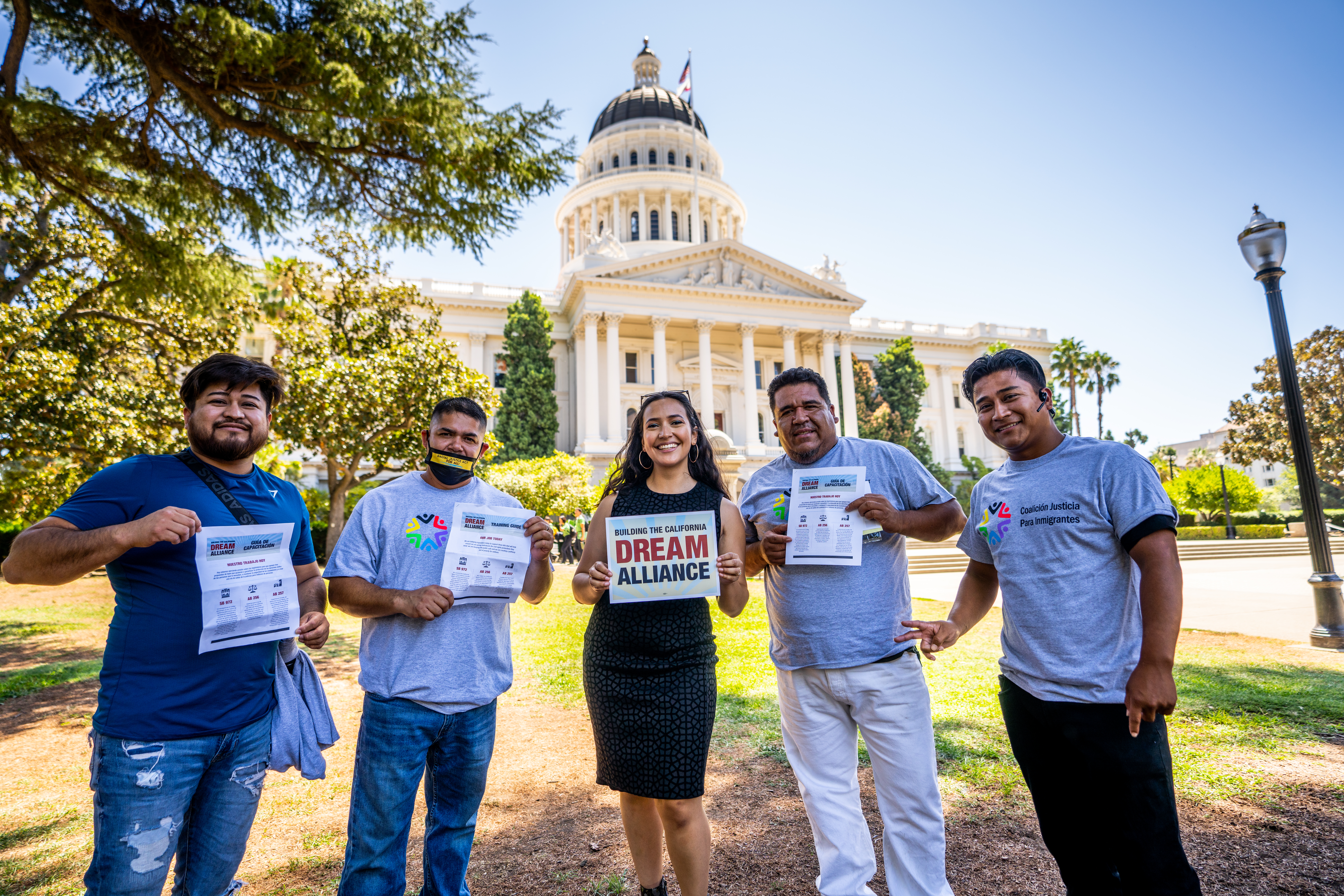
2023 BUILDING THE CALIFORNIA DREAM ALLIANCE PRIORITY LEGISLATION
The Building the California Dream Alliance was founded in 2015 to further a progressive vision for California by uniting diverse community groups and supporting each other’s efforts in our State Capitol. Since our inception, we remain united in our commitment to the equal worth and dignity of every Californian, inclusive of race, gender, sexual orientation, immigration status, disability, health status, or age.
Each year, the Alliance goes through a rigorous process to select 28 diverse and ambitious pieces of legislation that embody our values as a progressive alliance. Below you will find our priority legislation for 2023.
CRIMINAL JUSTICE
SB 94 (Cortese) – Would allow judges to review sentences of death and life without parole from before 1990. A judge would be able to consider mitigating factors such as whether the individual experienced childhood trauma, was a victim of sexual violence, age related factors, and racial bias in the case.
Contact: Glenn Backes, Ella Baker Center for Human Rights, 916.202.2538, glennbackes@mac.com
CIVIL RIGHTS (DISABILITY RIGHTS)
SB 365 (Wiener) SIGNED INTO LAW
Would protect workers and consumers from the delay tactics corporations use when a trial court rules that a forced arbitration agreement is invalid. Current law allows corporate defendants to effectively pause a worker’s or a consumer’s case – sometimes for years at a time – by simply filing a meritless appeal. Specifically, this bill would allow a worker or consumer’s case to move forward even if a company files an appeal, instead of putting their case on hold for 1-3 years.
Contact: Jacquie Serna, Consumer Attorneys of California, 323.979.7167, jserna@caoc.org
EDUCATION (EARLY CARE AND EDUCATION THROUGH HIGHER EDUCATION)
AB 596 (Gomez-Reyes) – Would ensure that child care providers are paid justly, that families can afford child care, and would eliminate racist child care policies. Specifically, this bill would require California to adopt an “alternative methodology,” which sets subsidy payment rates based on the actual cost of providing child care, including the cost of eliminating family fees for those who can least afford it.
Contact: Giani Interiano Brown, Child Care Law Center, 415.558.8005 ext.107 ginterianobrown@childcarelaw.org
ENVIRONMENTAL QUALITY AND JUSTICE
SB 253 (Wiener, Gonzalez, and Stern) SIGNED INTO LAW
The Climate Corporate Data Accountability Act would mandate the largest corporations that do business in California – those with revenues in excess of $1B – be transparent about their emissions. More specifically, this bill requires such corporations to annually report their full carbon footprint, including Scope 1 emissions (direct emissions), Scope 2 emissions (indirect emissions from purchased energy), and Scope 3 emissions (emissions from the business product chain which are up to 11 times higher than scopes 1 & 2).
Contact: Melissa Romero, California Environmental Voters, 916.223.5894, melissa@envirovoters.org
SB 674 (Gonzalez) – The Refinery Air Pollution Transparency and Reduction Act would strengthen protections for the fenceline communities living next to CA’s refineries and increase oversight of refinery operations. The bill will improve CA’s fenceline monitoring program and provide nearby EJ communities with transparency into toxic pollution entering their neighborhoods and the basic protections they deserve and are legally entitled to.
Contact: Erica Martinez, Earthjustice, 916.704.7027, emartinez@earthjustice.org
GENDER EQUITY
AB 524 (Wicks) – Would prohibit employers from discriminating against employees based on their status as a caregiver by adding “family caregiver status” to the list of protected characteristics (e.g., race, sexual orientation, marital status, religion, etc.) that are already prohibited bases of discrimination under the employment provisions of the Fair Employment and Housing Act. “Family caregiver status” means a person who contributes to the care of one or more family members.
Contact: Julia Parish, Legal Aid at Work, 510.318.0911 jparish@legalaidatwork.org
HEALTHCARE AND LONG-TERM CARE ACCESS FOR ALL
AB 1091 (Wood) – Would provide health merger oversight to help protect access to care and prevent inflated costs. More specifically, this bill would give the Attorney General the authority to review and place conditions on health industry mergers (not just those with nonprofit hospitals), including for-profit hospital chains, medical groups, private equity and hedge funds, and more. This bill will also prohibit specific anti-competitive contracting provisions, aligning the rest of the healthcare industry with the pro-consumer conditions of the landmark 2021 Sutter Settlement.
Contacts:
Katelin Van Deynze, Health Access California, 916.870.4782, kvandeynze@health-access.org
Shannon Olivieri Hovis, NARAL Pro-Choice California, 213.361.8371, shovis@prochoiceamerica.org
SB 525 (Durazo) SIGNED INTO LAW
Would establish a $25 per hour minimum wage for healthcare workers in an effort to attract and retain these workers. Healthcare workers are leaving the industry at a high rate, causing delays in care for patients.
Contact: Eddie Carmona, PICO California,202.802.1165,
AB 1645 (Zbur) – Would strengthen existing law to ensure that patients can access lifesaving preventive care – including all the services and office visits that are necessary for delivering that care – without cost sharing. The bill will also expand access to screening for STIs and help to address the state’s growing STI epidemic among youth, LGBTQ+ people, and communities of color.
Contact: Craig Pulsipher, Equality California, 619.770.9010, craig@eqca.org
HOUSING, HOMELESSNESS AND TENANT RIGHTS
SB 653 (Reyes) Would require a Housing Authority to report how many people who get vouchers are actually able to use them. If they have very low “success rates”, AB 653 would require Housing Authorities to implement best practices, like increased rent payment standards, and opening up higher opportunity neighborhoods for tenants.
Contact: Chris Martin, Housing California,847.650.8780, cmartin@housingca.org
SB 567 (Durazo) SIGNED INTO LAW
Would help prevent homelessness by increasing stability and affordability for renter families by lowering the rent cap and no-fault evictions. In addition, it would increase the number of families covered and scope of enforcement protections.
Contact: Eddie Carmona, PICO California, 202.802.1165, eddie@picocalifornia.org
AB 12 (Haney) SIGNED INTO LAW
Would prohibit landlords from charging two times (in some cases three times) the monthly rent as a security deposit. This bill would limit the amount that could be charged for a security deposit to one month’s rent, making California the twelfth state in the country to grant these protections.
Contact: Matt Lege, SEIU California, 916.835.7816, mlege@seiucal.org
Note: SEIU is not the organizational sponsor. This is a member-sponsored bill
IMMIGRANT AND REFUGEE JUSTICE AND INTEGRATION
AB 1306 (W. Carrillo) – The HOME Act would end transfers between the Department of Corrections and Rehabilitation (CDCR) and Immigration Customs Enforcement (ICE) for individuals who have served their time and been paroled. The bill focuses on previous restorative justice legislation that has been signed into law and ensures individuals under those policies are able to return home and restart their lives, regardless of their citizenship status.
Contact: Faith Lee, Asian Americans Advancing Justice – CA, 626.233.3210, Flee@ajsocal.org
INCOME AND FOOD SECURITY
SB 725 (Smallwood-Cuevas) – Would require a grocery establishment that conducts layoffs as a result of a merger or acquisition to provide workers with one week of severance pay for every year of service. This legislation is especially important as Kroger and Albertsons have announced a $25 billion mega-merger, the largest proposed grocery merger in US history, that could lead to the closure of 115 stores and the loss of over 6,000 grocery worker jobs in just the Los Angeles and Orange Counties alone. Without severance pay protections, the loss of this many jobs in one region will have ripple effects through the local economy and further burden an already tattered social safety net.
Contact: Jassy Grewal, UFCW Western States Council, 951.252.4491, jassy@ufcwstatescouncil.org
LGBTQ EQUALITY AND RIGHTS
SB 760 (Newman) SIGNED INTO LAW
Would require K-12 schools statewide to provide at least one accessible all-gender restroom for students to use safely and comfortably during school hours. Survey data shows that 45% of LGBTQ+ and non-binary students actively avoid using gender-segregated school restrooms because it makes them feel unsafe or uncomfortable.
Contact: Craig Pulsipher, Equality California, 619.770.9010, craig@eqca.org
RACIAL JUSTICE
SB 50 (Bradford) – Would address racial profiling by limiting pretext stops by police, prohibiting police from stopping people for technical vehicle code violations unrelated to safety, and allow local governments to use non-police for traffic enforcement.
Contact: Natasha Minsker, Smart Justice California, 510.206.6270, natasha.minsker@gmail.com
FINANCIAL SECURITY (Retirement, Taxation)
AB 1082 (Kalra) – Would end “poverty tows” by prohibiting towing a vehicle due to unpaid parking tickets, increase the number of unpaid tickets before registration can be held up, and improve parking ticket payment programs. When cars are towed due to outstanding debt, low-income Californians lose what is often their greatest asset and cities are even less likely to collect the debt – in short, everybody loses. These changes together will allow California to once again lead the way in ending poverty tows and helping working families continue to drive to work, pay their rent and bills, and provide for their families.
Contact: Danica Rodarmel, Lawyers’ Committee for Civil Rights, 707.888.8672 danica@wholeconsulting.org
AB 1356 (Haney) – The Protect Laid Off Workers Act would expand California’s layoff protection law, the WARN Act, to strengthen economic security for Californians and meet the needs of workers today. It will extend the requirement to give notice of a layoff from 60 to 90 days, ensure that no workers’ safety net is tied up in severance negotiations, and include contract workers in these critical protections.
Contact: Sam Gordon, TechEquity Collaborative, 916.396.2809, samantha@techequitycollaborative.org
VOTING RIGHTS & STRENGTHENING OUR DEMOCRACY
AB 421 (Bryan) SIGNED INTO LAW
Would reform the referendum process to balance the playing field and help fight corporate power.
Contact: Matt Lege, SEIU California, 916.835.7816, mlege@seiucal.org
ACA 4/AB 1595 (Bryan) – A ballot measure to restore the right to vote to persons held in state prisons.
Contacts:
Danica Rodarmel, Lawyers’ Committee for Civil Rights, 707.888.8672, danica@wholeconsulting.org
Glenn Backes, Ella Baker Center for Human Rights, 916.202.2538, glennbackes@mac.com
WORKER RIGHTS
SB 497 (Smallwood-Cuevas) SIGNED INTO LAW
The Equal Pay and Anti-Retaliation Act would create a rebuttable presumption that a negative action against an employee is retaliatory if it occurs within 90 days of reporting a labor or equal pay violation. The bill would also allow whistleblowers who experience retaliation to collect a penalty of up to $10,000 that currently only the state may collect from lawbreaking employers.
Contacts:
Mariko Yoshihara, California Coalition for Worker Power, 916.340.5084, mariko@yoshihara-lp.com
Rachel Deutsch, California Coalition for Worker Power, 415.793.3154, rachel@californiaworkerpower.org
SB 616 (Gonzalez) SIGNED INTO LAW
Would guarantee five days of paid sick leave for most workers in California. The COVID-19 pandemic has powerfully confirmed the need for more than the three days required by current law, Supplemental Paid Sick Leave and Cal/OSHA’s Exclusion Pay have both expired, and eight major cities in California now mandate 6-7 days or more.
Contact: Mitch Steiger, California Labor Federation, 916.524.5182, msteiger@calaborfed.org
AB 1 (McKinnor) SIGNED INTO LAW
Would allow non-supervisorial legislative staff to join a union and collectively bargain for wages & benefits.
Contact: Mitch Steiger, California Labor Federation, 916.524.5182, msteiger@calaborfed.org
